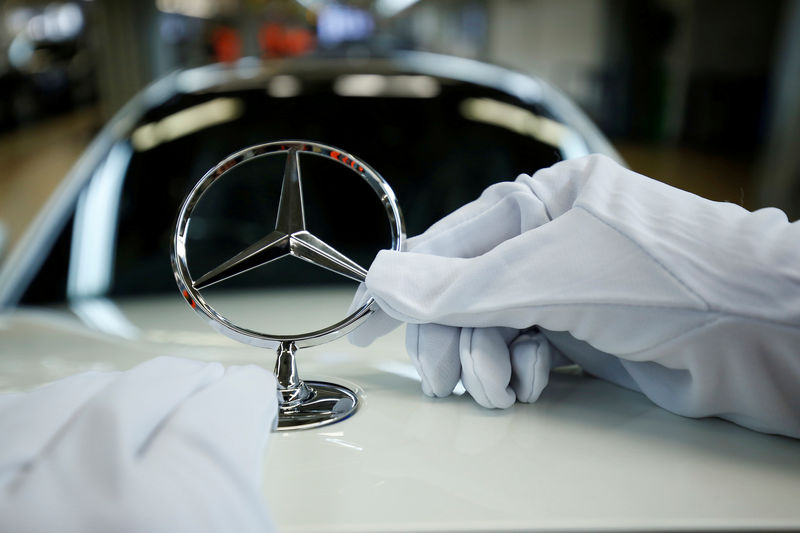By Tom Miles
GENEVA (Reuters) - The United States will find it "very difficult" to defend President's Donald Trump's proposed car tariff against any challenge at the World Trade Organization, a veteran trade adjudicator who has ruled on a related case told Reuters.
Trump said this month that some imported vehicles and parts pose a "national security" threat, justifying tariffs under Section 232 of the Trade Expansion Act of 1962, the basis for tariffs put on steel and aluminum last year.
The car tariff of up to 25 percent, applying to vehicles and components from everywhere else in the world, would be automatically illegal were it not for a WTO exception granted in cases of national security.
Until 2016, using the national security clause was taboo because trade experts feared it could become a common way to get around the rules and erect the kind of trade barriers the WTO was designed to remove.
But it has arisen in disputes between Russia and Ukraine and between Qatar and several of its neighbors, as well as in Trump's tariffs.
In a rare comment by a senior trade arbitrator, Georges Abi-Saab, a former chairman of the WTO's Appellate Body, the world's top trade court, said he doubted the national security argument for cars would withstand a legal challenge.
"Frankly I think, if I were a lawyer (working on the case) I wouldn't accept to take such a case – not only on moral aspects, but I think it would be very difficult to make it prevail," he said.
The car tariffs have not yet materialized, since Trump has given the European Union, Japan and other major exporters 180 days to negotiate. A legal challenge from any of the parties cannot be considered until tariffs are active.
ACTUAL WAR
Last month Abi-Saab chaired a dispute panel which issued the only ruling in WTO history on the national security question, settling the dispute in favor of Russia, which was found to have a bona fide legal defense against Ukraine because of an armed conflict recognized by the United Nations.
But the ruling set a high bar for national security claims, saying they needed to be based "objectively" on an emergency in international relations, and the less a claim had to do with actual war, the harder it would be to make the case.
"I would say strategic raw materials may be easier to prove than a final product like a car," Abi-Saab said. "The further you get away from it (armed conflict and the breakdown of law and civil order), the more you have to prove how this relates to national security."
That contrasts with the U.S. view that national security claims are "self-judging" and WTO adjudicators must automatically dismiss any challenge.
WTO rulings do not set formal precedents, but adjudicators routinely refer back to previous cases, so the Russia-Ukraine ruling could influence the handling of ongoing challenges to the U.S. steel and aluminum tariffs by China, Turkey, Switzerland, Norway, the EU and India.
They reject U.S. claims that protecting metals output is needed for "defense requirements and critical infrastructure".

Two other complainants, Canada and Mexico, lifted their opposition this month after reaching a deal with Trump.